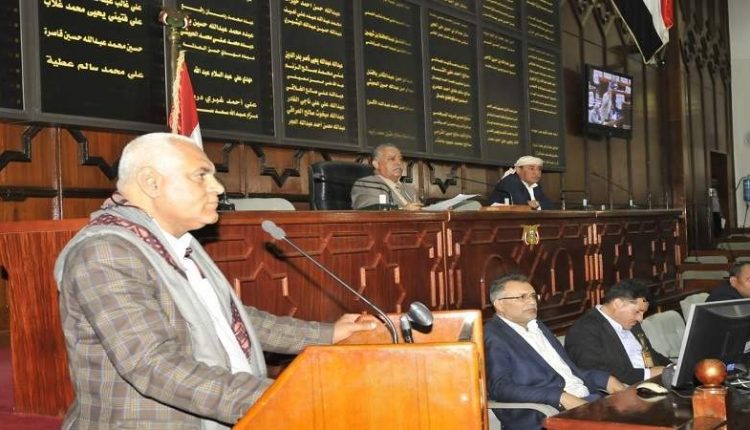Parliament Condemns Torturing Prisoners by US-Saudi Aggression
The Parliament denounced, Wednesday, the torture and violations committed by the mercenaries of US-Saudi aggression against the prisoners, the latest of which was the torture of prisoner Nabil Mohammed Al-Khouli, who died in one of the mercenaries’ prisons.
The Council considered this crime one of a series of crimes of the aggression against the prisoners, in light of the declared truce, which contradicts all international laws, norms and covenants related to human rights.
It called on the United Nations to assume its humanitarian and moral responsibilities in protecting the prisoners and holding the perpetrators of crimes against them accountable.
For its part, the head of the National Committee of Prisoners stressed that the prisoners’ issue is a humanitarian one, and the committee deals with it from this point of view, indicating that it is followed up by the leadership of the revolution, in order to reach the implementation of this agreement, and liberating all prisoners.
He said, “We are keen to free all our prisoners, and this issue should not be subjected to leniency at all.”
Al-Murtada expressed the hope that the United Nations would take more serious and positive steps to pressure the other party to implement what was committed and agreed upon.
He added, “We affirm that there is absolutely no delay by our part in implementing this agreement,” pointing out that the National Prisoners’ Committee had received promises from the UN that there would be progress in the coming weeks, and more positive steps to implement this agreement.
A UN-brokered truce in Yemen first came into effect on 2 April, and for an initial two months. It was renewed for another two months in June.
The deal stipulated halting offensive military operations, including cross-border attacks, and allowing fuel-laden ships to enter Yemen’s lifeline Hodeidah port and commercial flights in and out of the airport in the capital Sana’a “to predetermined destinations in the region.”
However, in light of UN silence, the Saudi-led aggression was still obstructing flights to the Sana’a International Airport in Yemen’s capital and detaining fuel ships that were headed to the country. The fires of the aggression side did not subside along the fronts, on the borders and inside, including shelling, reconnaissance, development and crawl.
When the period specified for the military and humanitarian truce was nearing its end, the US-Saudi aggression seemed to be in a hurry to adopt the option of extending it for the third time to freeze the battle in Yemen and its economic repercussions away from global energy markets.
The forces of aggression are pushing for an extension, not out of concern for peace, but rather out of fear that the escalation will add more complications to the international scene in addition to the crisis imposed by the Russian-Ukrainian war.
A truce, the positive effects of which have not been felt by the citizens over the past months, despite its broad headlines. Commercial flights to Cairo are still stumbling until today, and the navy of aggression continues to pursue fuel ships without respect for agreements or any regard for international laws and norms.
Double standards regarding the violations of the forces of aggression and its provocative practices is a double UN policy that has brought the crisis in Yemen to its current level of misery and deprivation that has affected everyone far from justice and the realization of the rights of the Yemeni people.
The Supreme Political Council requires, in order to extend the truce, the commitment of the Saudi-led aggression to pay the salaries of all employees and the rest of the services, as a natural entitlement that is not subject to extortion. Before that, the complete blockade of Sana’a airport and the port of Hodeidah must be lifted as a criterion for demonstrating the seriousness and goodwill in the faltering peace process in Yemen.
The truce has been renewed for an additional two months through 2 October, UN Special Envoy for Yemen, Hans Grundberg, announced on Tuesday.
The extension includes a commitment by the Saudi-led aggression and the Salvation Government to intensify negotiations to reach an expanded agreement as soon as possible.

